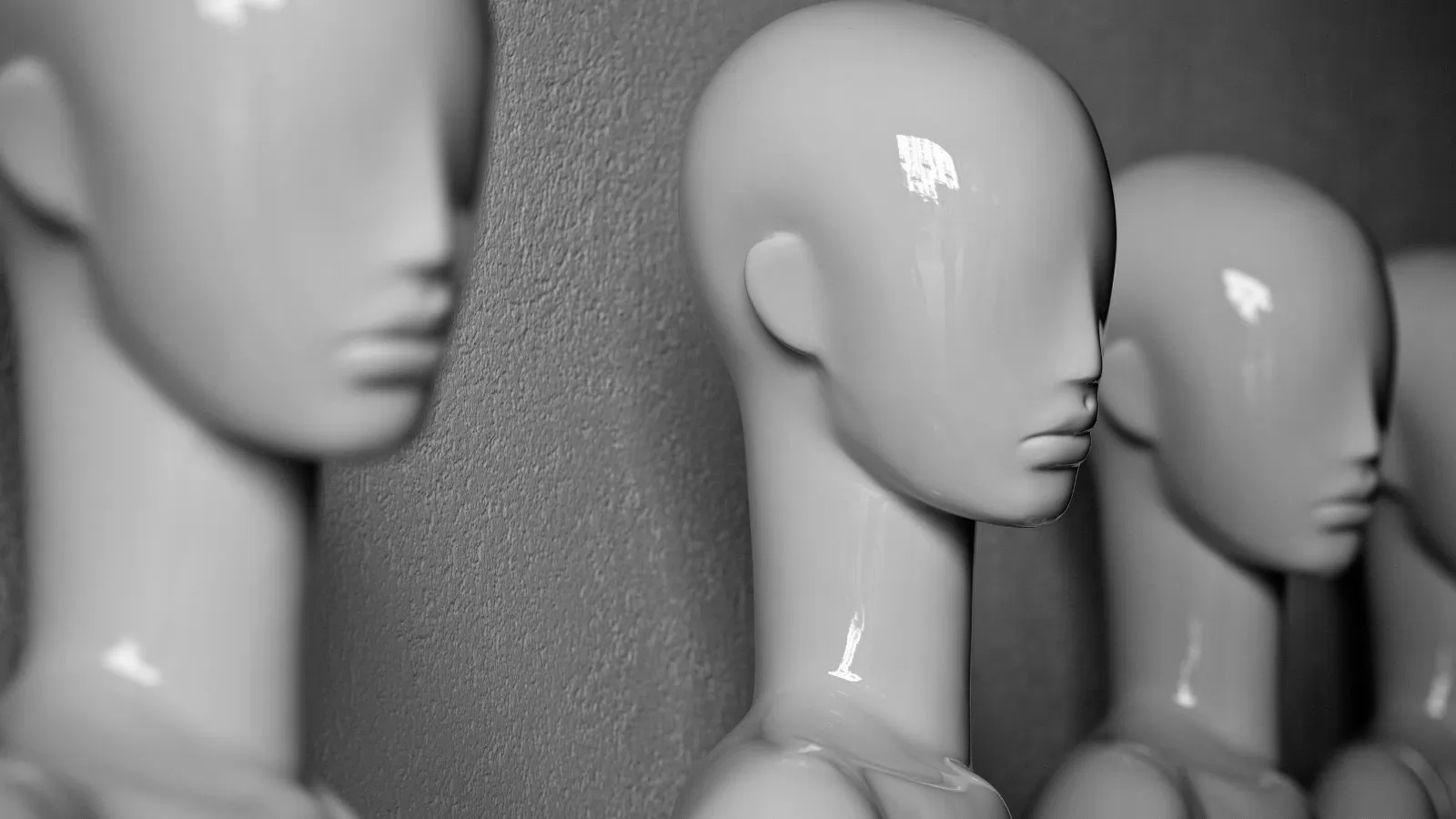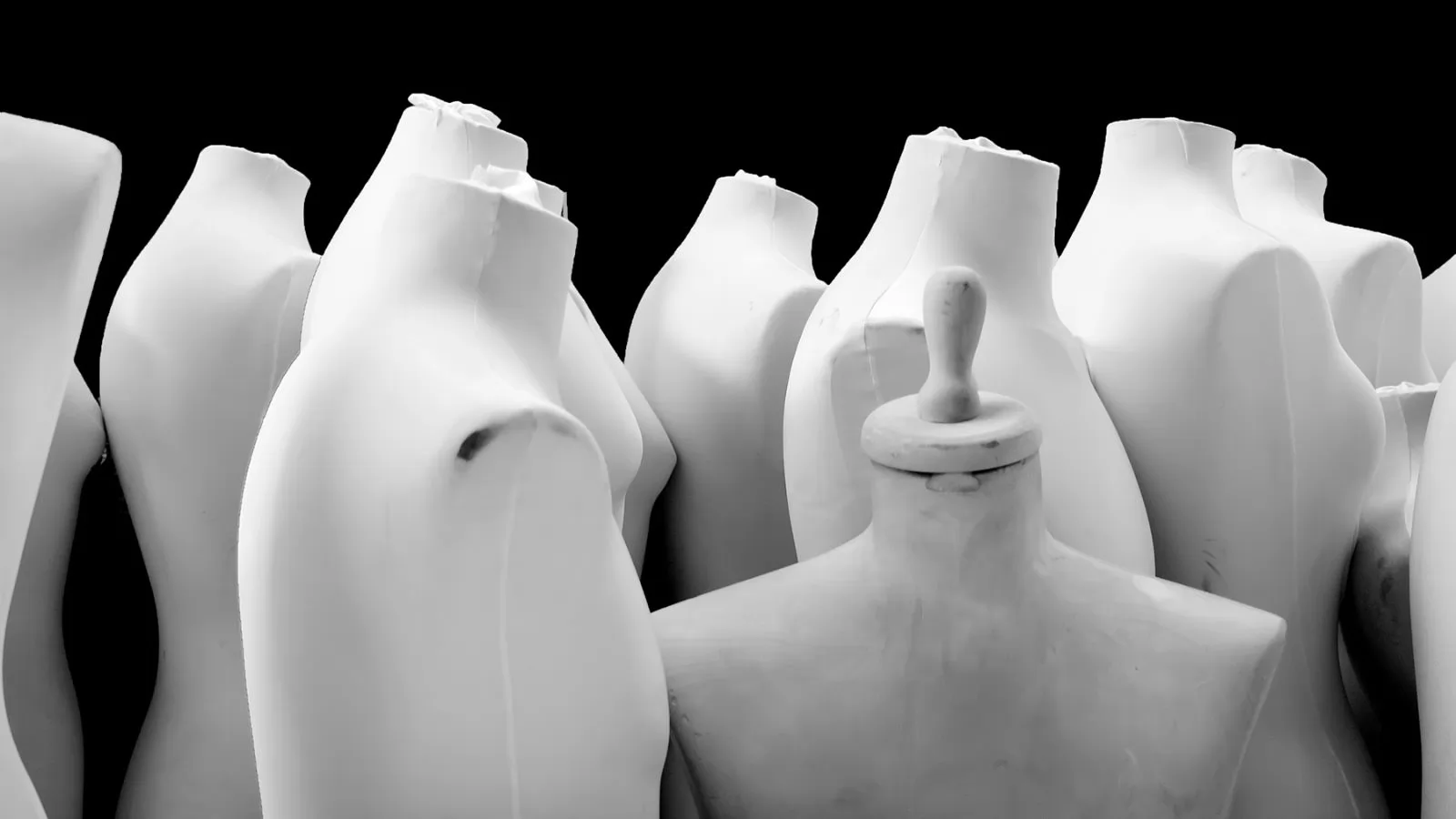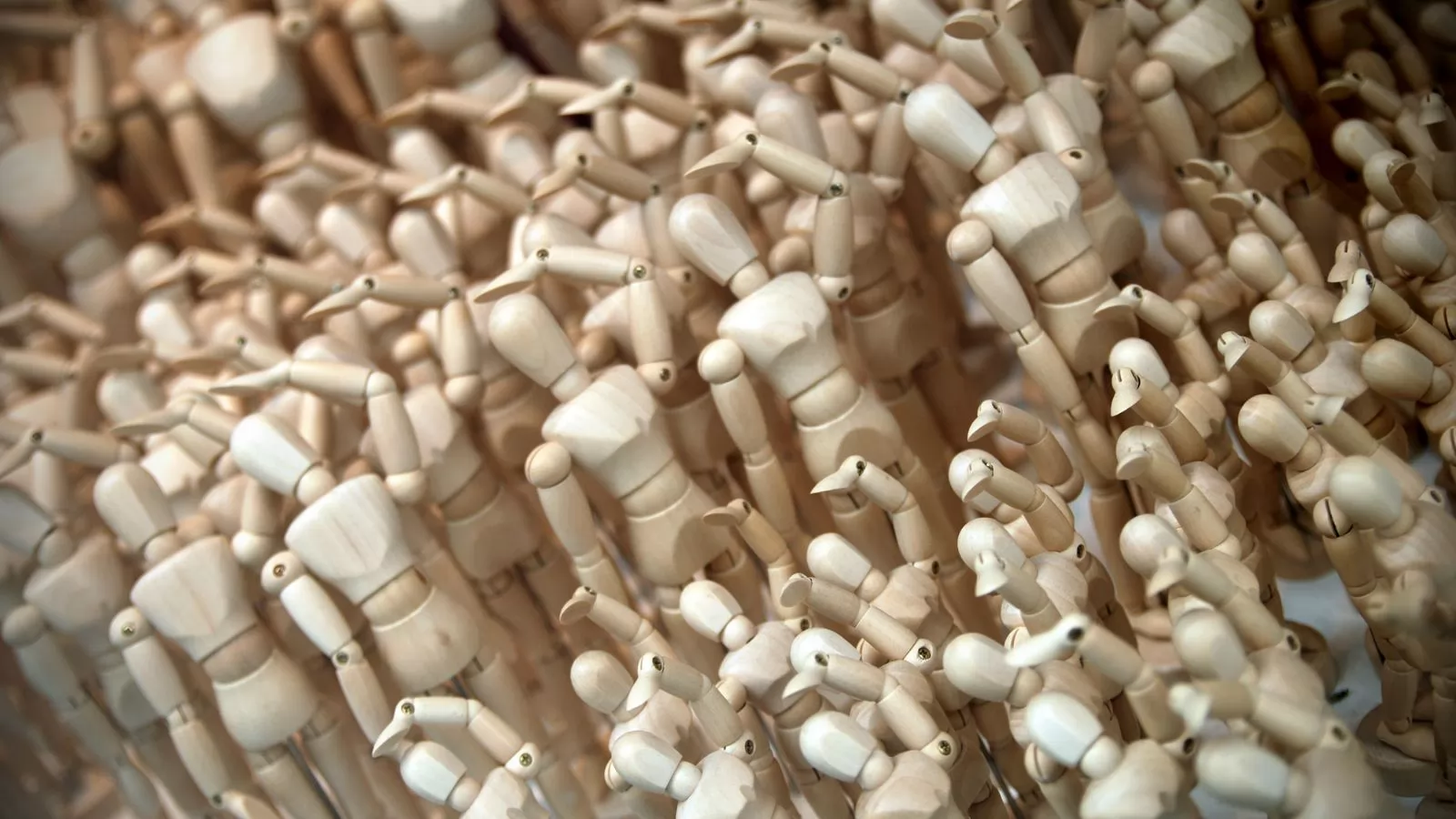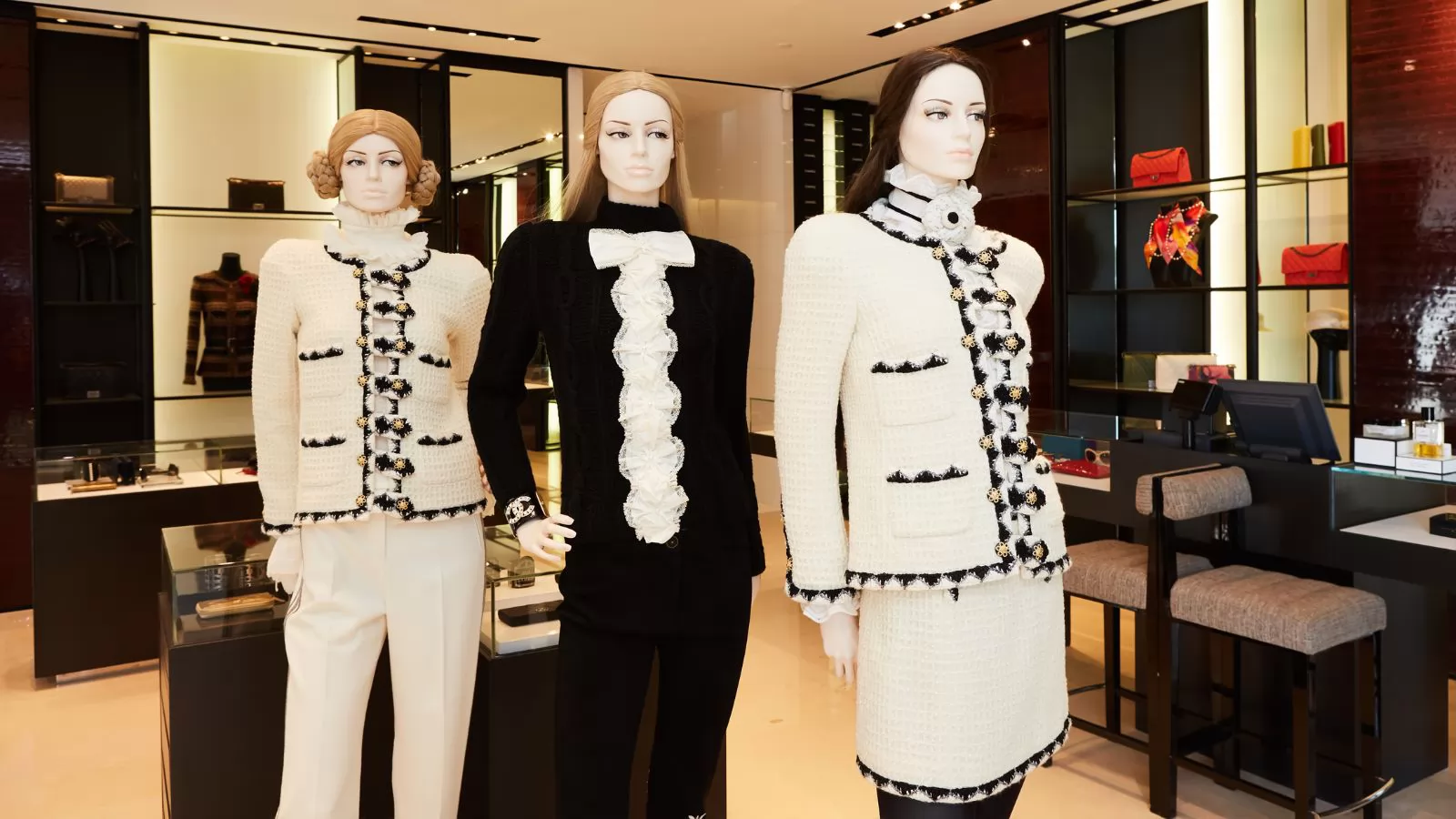

_1722480294_WNo_1600d900.webp)
● Are Mannequins Made of Fiberglass?
● Fiberglass: The workhorse of mannequins
● In addition to fiberglass, what other materials are there?
Yes, fiberglass is one of the most commonly used materials for making mannequins.Fiberglass mannequins are popular because they are lightweight, durable, and can be molded into highly detailed and realistic forms. They provide a smooth finish that can be painted or coated to achieve various skin tones and textures, making them ideal for displaying high-end fashion and accessories. Despite their fragility compared to plastic, their superior appearance and quality make them a preferred choice for upscale retail environments.
This composite material is a mixture of glass fiber and resin, and has the following advantages:
High strength and light weight:
FRP, or Fiber Reinforced Plastic, exhibits a unique combination of both strength and toughness. This material is engineered to withstand a significant amount of impact force without compromising its structural integrity. Despite its robust nature, FRP remains remarkably lightweight, making it exceptionally easy to handle, transport, and install. Its light weight contributes to its versatility, allowing it to be used in a wide range of applications where ease of placement and portability are essential. Whether used in construction, automotive, or aerospace industries, FRP's ability to maintain high performance while being easy to carry and place makes it an invaluable material in modern engineering and manufacturing.
Good formability:
FRP, or Fiber Reinforced Plastic, is known for its excellent formability, which allows it to be used in the creation of mannequins with a wide array of complex and intricate shapes. Whether the design requires the replication of slender female curves, the depiction of strong and defined male muscles, or any other detailed anatomical features, FRP can accurately and vividly present these forms. This versatility makes it an ideal material for producing mannequins that cater to diverse fashion displays and artistic presentations, ensuring that the final product meets both aesthetic and functional requirements.

Strong corrosion resistance:
One of the standout properties of FRP is its impressive resistance to corrosion. This material exhibits excellent resistance to both acidic and alkaline environments, making it highly durable in various settings. Additionally, FRP boasts remarkable weather resistance, which ensures that it does not easily deform or age even when exposed to harsh environmental conditions. This high level of durability translates to a long service life, making FRP an economical and reliable choice for applications where longevity and resilience are crucial, such as in outdoor displays or in regions with extreme weather.
Smooth surface:
FRP features a smooth and polished surface, which not only enhances the aesthetic appeal of mannequins but also simplifies their maintenance. This smooth surface is easy to clean, allowing for quick removal of dust, dirt, and other contaminants, thereby ensuring that the mannequin retains its pristine and new appearance for an extended period. The ease of cleaning and maintaining FRP mannequins contributes to their enduring attractiveness and functionality, making them a preferred option for retail stores, museums, and exhibitions where appearance and cleanliness are paramount.
Plastic mannequins
Plastic mannequins have gained popularity over the past few years due to their cost-effectiveness and versatility. Often made from high-density polyethylene or polyurethane, these mannequins can be moulded into a wide range of poses and shapes, allowing for greater flexibility in visual merchandising. Plastic mannequins are also lightweight and easy to handle, making them a practical choice for environments that will require frequent repositioning, like larger retailers or shopping malls.

Wooden mannequins
While not quite as modern as other materials, wood is still a popular choice for mannequins because it is sturdy and can evoke a classic, vintage atmosphere. Often a popular choice for artists (think the miniature wooden forms you often see in galleries and art studios), wooden mannequins are often crafted out of hardwoods such as maple, oak or beech. The natural beauty of wooden mannequins help to evoke a sense of timeless elegance.
One of the primary functions of a hanger is to protect your garments. Whether it's a delicate silk blouse or a heavy winter coat, the right hanger can prevent stretching, creasing, and distortion of fabrics over time. This is especially crucial for retailers and fashion designers who want their merchandise to look as pristine on the rack as it did on the runway or in the showroom.

When choosing the material of a mannequin, you need to consider the following factors:
Purpose:
The intended use of the mannequin plays a crucial role in determining the appropriate material. If the mannequin is to be used to display high-end clothing in a retail store or fashion show, fiberglass is the first choice due to its superior finish and ability to be molded into highly detailed and realistic forms. Fiberglass mannequins exude elegance and are better suited for showcasing luxury garments and accessories. On the other hand, if the mannequin is for temporary display purposes, such as seasonal promotions, trade shows, or short-term events, plastic mannequins can effectively meet these needs. They are lightweight, easy to move, and sufficiently durable for short-term use.
Budget:
The budget available for purchasing mannequins is another important consideration. Fiberglass mannequins tend to be more expensive due to their high-quality finish, durability, and realistic appearance. They are an investment that pays off in environments where visual appeal and quality are paramount. Conversely, plastic mannequins are relatively lower in cost, making them a more budget-friendly option. They provide a practical solution without compromising too much on functionality or aesthetics, especially in settings where cost-efficiency is a priority.
Use environment:
The environment in which the mannequins will be used significantly influences the material choice. If the use environment is relatively harsh, such as outdoor displays, areas with high humidity, or industrial settings, it is recommended to choose fiberglass mannequins due to their strong corrosion resistance. Fiberglass is resistant to various environmental factors, including moisture, chemicals, and UV radiation, ensuring that the mannequins remain in good condition for a longer period. This durability makes fiberglass mannequins suitable for both indoor and outdoor use, where they may be exposed to elements that could potentially damage other materials.

FRP has become the main force in making mannequins due to its high strength, good formability and strong corrosion resistance. However, with the development of technology, more and more new materials are being used in the manufacture of mannequins. When choosing a mannequin, consumers can choose the most suitable material according to their own needs and budget.
If you need a reliable hanger manufacturer, then it is recommended to contact Eisho. Eisho is a professional manufacturer and exporter of designing and manufacturing hanger products.







